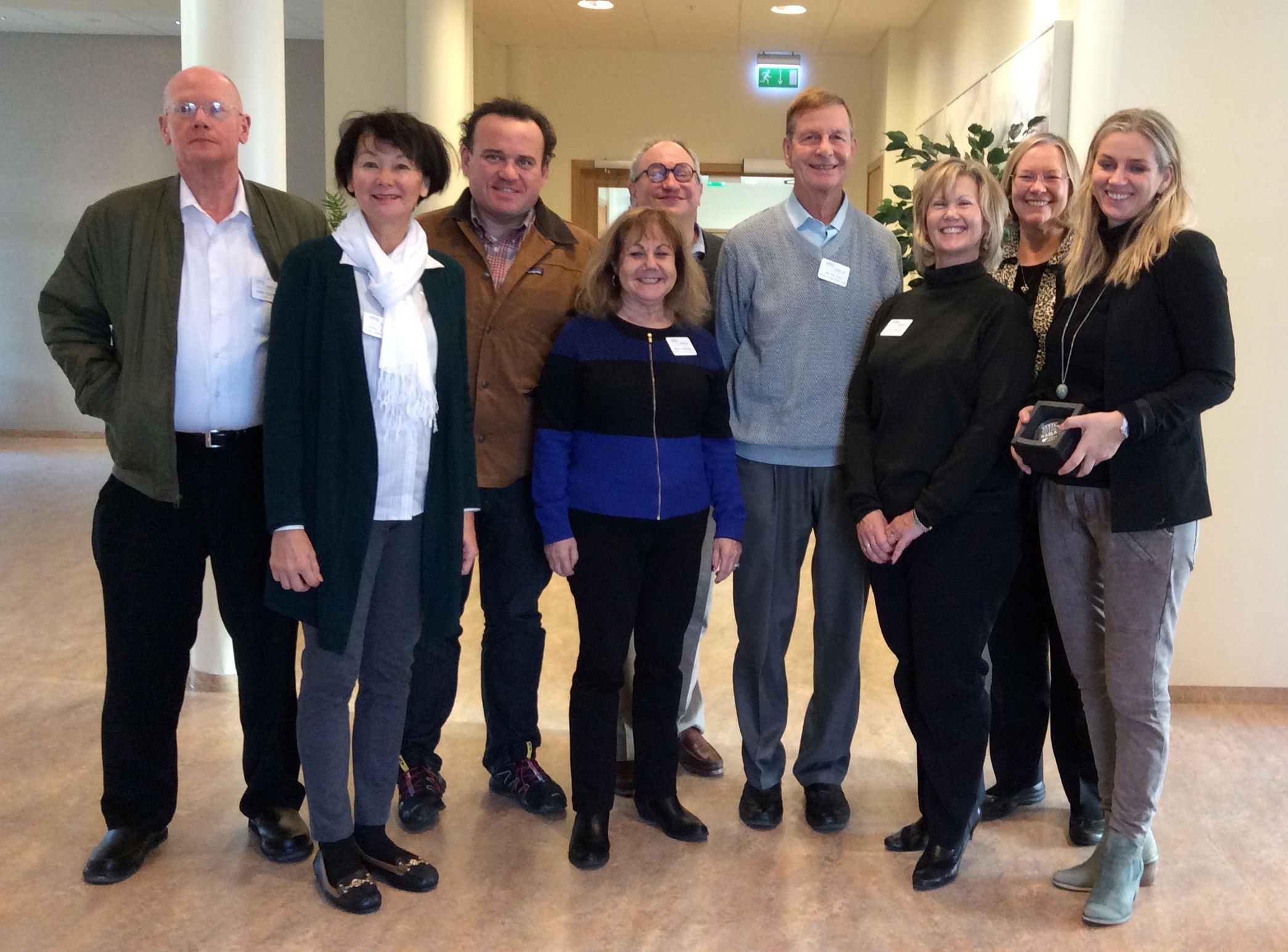NAELA’s 2014 Delegation to Iceland Studies Rights, Representation, and Support for Seniors
By Shirley B. Whitenack, CAP
Iceland’s Aging Population in The Wake of the Economic Crash of 2008
NAELA organized a delegation to Iceland in October 2014 for the purpose of researching the rights, representation, and support for the aging population in Iceland. Members of the delegation included the Honorable Coral Wong Pietsch of the United States Court of Appeals for Veterans Claims; Professor James H. Pietsch, Director, University of Hawaii Elder Law Program; John Frazier, Esq.; John Gosselin, Esq.; Ruth Phelps, CELA, CAP; Gayle Reeves, Esq.; Stephen Silverberg, CELA, CAP; and Shirley Berger Whitenack, CAP (delegation leader).
The delegation met with staff members of the Welfare Department of Reykjavik, the Director General of Health Services of Iceland’s Ministry of Welfare and the Dean of the Law Department of the University of Iceland. We visited a nursing home, a community center, and an apartment building for seniors. Through these activities, delegation members learned about the unique challenges that have confronted Iceland’s national and municipal welfare agencies in delivering services and supports to seniors in the wake of a financial crash that occurred in October 2008.
Iceland is an island nation with a population of about 325,000. About one third of that population lives in and around the city of Reykjavik. Individuals who are 67 years of age and older who have lived in Iceland at least three calendar years between 16 and 67 years of age are entitled to receive old age pensions. About 92 percent of the population between the ages of 80 and 87 live in their own homes.
Pursuant to Iceland’s universal health care laws, the national government is predominantly responsible for the delivery of medical services to Iceland’s inhabitants and, until a few years ago, was in charge of providing home care and nursing home services to seniors. Funding for health care services as well as services and supports for seniors are primarily secured through taxes. In October 2008, three of Iceland’s largest banks collapsed. The Icelandic krona fell by 86 percent that year and unemployment rose sharply. Iceland’s Ministry of Welfare and the municipal welfare agencies faced great difficulties as the debt burden of families and companies soared. With the help of the Red Cross, the Evangelical Lutheran Church of Iceland (the National Church), and local foundations, the national government and municipalities came up with a plan to offer financial assistance to those in need and to transfer the delivery of certain social services for the elderly and those with disabilities from the national government to the municipalities. To this day, according to the Welfare Department of Reykjavik, financial assistance and the need for social services are still substantial, even though unemployment is decreasing.
 The NAELA Delegation to Iceland at the Isafold Nursing Home. From left: John Frazier, the Hon. Coral Wong Pietsch, John Gosselin, Shirley B. Whitenack, Stephen Silverberg, James Pietsch, Gayle Reeves, Ruth Phelps, and Isafold
The NAELA Delegation to Iceland at the Isafold Nursing Home. From left: John Frazier, the Hon. Coral Wong Pietsch, John Gosselin, Shirley B. Whitenack, Stephen Silverberg, James Pietsch, Gayle Reeves, Ruth Phelps, and Isafold Nursing Home Business Manager.
Service Pyramid Delivers Services
The goal of the Welfare Department of Reykjavik is to follow a service pyramid for the elderly, with prevention, health care, and community centers at its base. Its objectives are respect, involvement, and empowerment. Seniors are encouraged to do as much as they can for themselves. Going up the pyramid, the welfare department provides social services such as meals on wheels, home nursing and day care services, and safety apartments and rehabilitation services. Nursing homes sit at the top of the pyramid.
The delegation spoke to some seniors during an afternoon visit at a community center for adults in Reykjavik. About 14 community centers are situated in Reykjavik’s neighborhoods and provide social activities, such as card playing, dancing, knitting and crocheting groups, and club activities to adults 18 years-of-age and older. Adults are encouraged to drop in, and no reservations are necessary to participate in the various activities.
We also visited service apartments for the elderly in Reykjavik. Located in multistory buildings, the apartments are equipped with a small kitchenette, bathroom, living area, bedroom(s), and a terrace. A food hall is located in the building and the seniors are encouraged to serve themselves at the meals. The residents can take part in various group activities in the building and services such as a small commissary and hair salon are available in the building.

NAELA member Stephen Silverberg dons Icelandic viking gear.
A Home-Like Feel
The delegation visited the Isafold Nursing Home, a fairly new facility in Reykjavik. Nursing homes in Iceland are designed to feel like home. Each resident at the Isafold Nursing Home has his or her own room that is equipped with a bathroom, bedroom area, and living area. At our meeting with Dr. Sveinn Magnusso, the Director General of the Iceland Ministry of Welfare’s Department of Health Services, we learned that in 2012, 85 percent of residents in Iceland’s nursing homes had their own rooms. Therefore, in that regard, Isafold was not unique.
In furtherance of the goal to have the nursing home feel like a home and not a hospital, staff members do not wear uniforms. Residents wake up whenever they want to but are encouraged to get out of their living quarters and socialize for meals and activities.
Nursing homes are funded by the government and there are waiting lists for living quarters in nursing homes. We were told that municipal committees select those on the waiting list based on need. Candidates generally don’t know when they are being considered for a vacancy and therefore, cannot appeal if the committee does not select them.
The professionals we met were candid about the problems they face in meeting the needs of seniors as Iceland continues to recover from its financial crisis, but they were optimistic that most seniors will be able to enjoy a good quality of life aging in place with services and supports from the government.
Shirley B. Whitenack, CAP, is NAELA President-Elect and a NAELA Fellow. She led the delegation to Iceland.